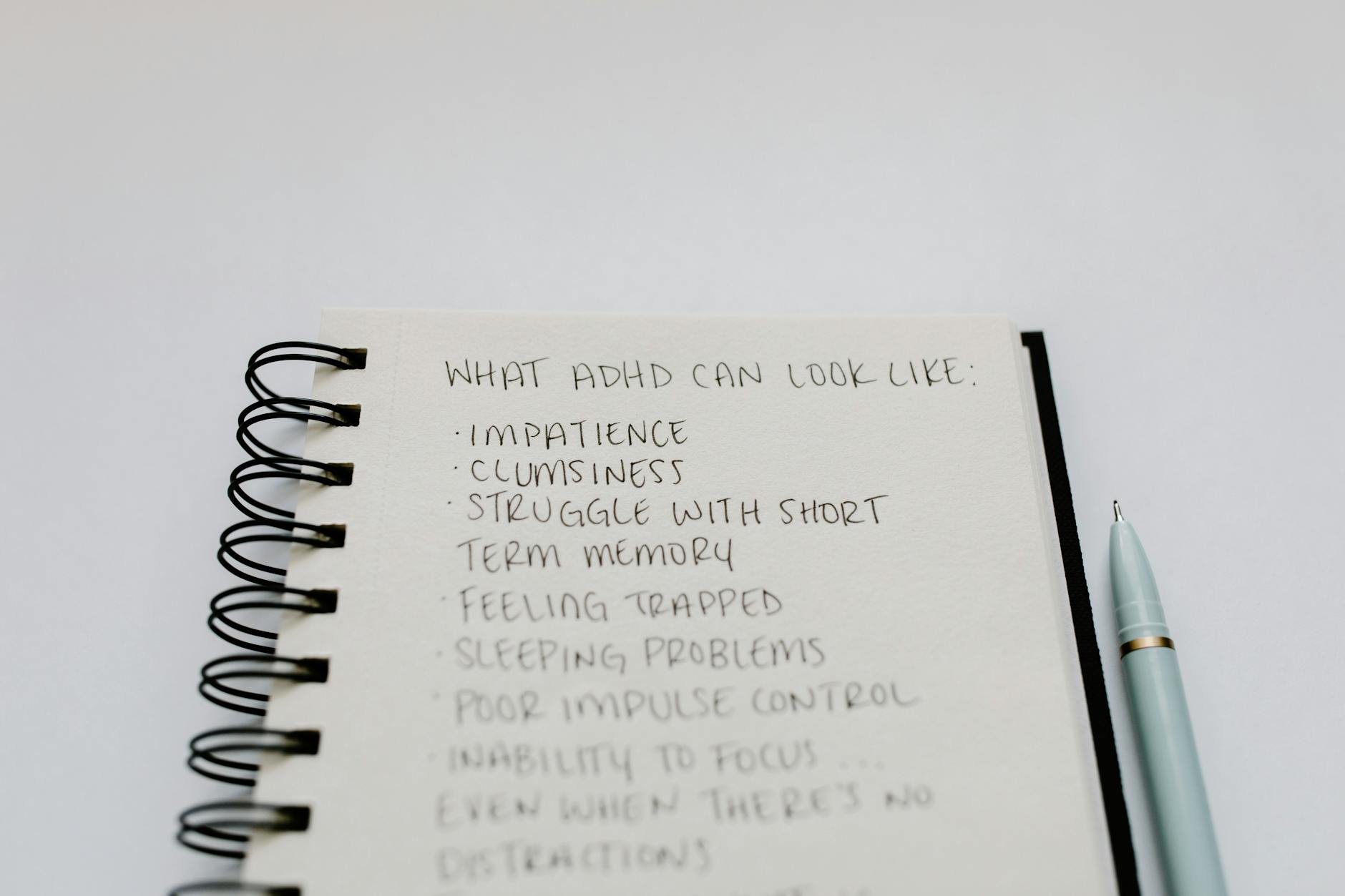What is adhd management?
What is ADHD Management?
Managing ADHD (Attention-Deficit/Hyperactivity Disorder) is more than just a series of strategies; it’s a journey toward enhancing daily life, improving focus, and fostering productivity. With effective management techniques, individuals can navigate the challenges associated with ADHD, transforming these challenges into opportunities for growth and success.
Understanding ADHD
ADHD is a neurological condition that affects both children and adults, impacting their ability to focus and manage impulses. Characterized by symptoms of inattention, hyperactivity, and impulsivity, ADHD can significantly affect daily functioning, relationships, and overall quality of life.
Symptoms of ADHD
Common symptoms of ADHD can vary widely from person to person. They typically fall into three main categories:
- Inattention: Difficulty focusing, forgetfulness, and careless mistakes.
- Hyperactivity: Constant fidgeting, difficulty remaining seated, and excessive talking.
- Impulsivity: Interrupting others, difficulty waiting for one’s turn, and making hasty decisions.
These symptoms can lead to challenges in both personal and professional settings, making effective management crucial. For a more detailed overview of ADHD symptoms, I found this helpful resource from the CDC.
Types of ADHD
There are three primary types of ADHD, each presenting unique characteristics:
- Predominantly Inattentive Presentation: This type is characterized mainly by inattention and difficulty organizing tasks.
- Predominantly Hyperactive-Impulsive Presentation: Individuals often exhibit hyperactive behaviors and impulsive actions without significant inattentiveness.
- Combined Presentation: This type includes a mix of both inattentive and hyperactive-impulsive symptoms.
Understanding these types can help tailor management strategies effectively. For a deeper look at ADHD types, refer to this Healthline article.
Strategies for Effective ADHD Management
Implementing effective management strategies is key to navigating daily challenges associated with ADHD. Here are several approaches that can foster better productivity and overall functioning.
Behavioral Techniques
Behavioral techniques focus on organizing one’s life and creating a structured environment. Some effective strategies include:
- Organization Skills: Keeping a planner or digital calendar can help track deadlines and appointments.
- Time Management: Breaking tasks into smaller, manageable parts can reduce overwhelm.
- Creating Routines: Establishing a daily routine can promote consistency and decrease anxiety.
For additional tips on practical strategies for managing ADHD, check out this insightful HelpGuide article.
Medication Options
Medication can play a vital role in managing ADHD symptoms. Common medications include:
- Stimulants: These are the most frequently prescribed ADHD medications and include options like methylphenidate and amphetamines, which help improve focus and reduce impulsivity.
- Non-stimulants: Medications like atomoxetine and guanfacine may be prescribed for those who do not respond well to stimulants.
It’s essential to discuss with a healthcare provider the potential benefits and side effects of these medications. For more detailed information on ADHD medications, consider this Cleveland Clinic overview.
Therapeutic Approaches
Therapeutic interventions, such as cognitive-behavioral therapy (CBT) and ADHD coaching, can offer significant benefits. CBT focuses on reshaping negative thought patterns, while coaching provides practical guidance in setting and achieving goals.
These therapeutic approaches can empower individuals to understand their behaviors better and develop coping strategies that enhance their daily lives.
Creating a Supportive Environment
A supportive environment can significantly enhance ADHD management. This includes involving family and friends in the process and utilizing technology to streamline daily tasks.
Involving Family and Friends
Support from loved ones can make a substantial difference. Family members can help create a structured environment, offer encouragement, and assist in staying on task. Having someone to share the journey with makes the process less isolating and more manageable.
Utilizing Technology and Tools
In today’s digital age, numerous tools and apps can assist in managing ADHD. Some popular options include:
- Task Management Apps: Tools like Todoist and Trello help organize tasks and deadlines.
- Focus Apps: Applications like Forest promote concentration by rewarding users for staying focused.
These technological aids can streamline efforts and improve overall organization.
Long-term Management and Outlook
Continuous management is crucial for individuals with ADHD. Strategies may need to evolve as personal and professional circumstances change.
Monitoring Progress
Regularly assessing the effectiveness of management techniques is essential. Keeping a journal to track successes and challenges can provide insights into what works best. This reflective process helps identify patterns and areas needing adjustment.
Adjusting Strategies as Needed
Flexibility is vital in managing ADHD. As life evolves, so too must the strategies employed. Being open to change and adapting techniques can lead to sustained success over time.
Conclusion
ADHD management is a multifaceted approach that involves understanding the condition, implementing effective strategies, and fostering a supportive environment. Whether through behavioral techniques, medication, or therapy, individuals can take control of their ADHD and enhance their quality of life. If you’re navigating ADHD, explore various strategies to discover what works best for you, and don’t hesitate to reach out for support along the way.

Photo by Tara Winstead